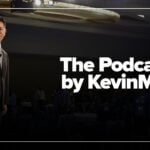It’s not the easiest question to ask aloud—especially in medicine, where we pronounce death but rarely reflect on it.
We chart it. Certify it. Explain it.
But what does it mean to die?
For most of us, the word carries a double weight. It means to stop biologically. To cease. To end.
But it also means to vanish. To be forgotten. To be no longer seen, needed, or named.
As a surgeon, I saw death up close. Often it came in a rush of monitors, blood loss, and adrenaline. Later, it became more quiet—expected, managed. But I only began to understand its meaning when I felt it threaten my self, not just my patients.
After my heart attack, the question stopped being abstract.
To die, in one sense, is to lose function.
The heart stops. The brain flatlines. The body begins to disintegrate.
There are no more rounds, no more charts, no more questions from the family.
But long before that moment, pieces of us begin dying.
When we give up on a dream.
When we stop being touched.
When we retire and no one calls to ask our opinion.
When our spouse starts repeating the same question.
When the laughter at our jokes feels more polite than amused.
Dying is not one moment—it’s a slow erosion. And the final breath is just the last surrender in a long series of losses.
To die is to disappear from the story.
That’s the ache underneath most death anxiety—not the fear of pain, but the fear of no longer mattering. Of becoming a past tense. A footnote. A body someone else clears out.
And that’s why we push so hard.
That’s why some doctors never retire.
That’s why we write books, keep plaques, teach courses, and tell our stories again and again to anyone who will listen.
We are trying to outlive ourselves.
But it never quite works.
To die is to become unknowable.
Even for those left behind, death creates a strange distance. No matter how close we were to the deceased, there’s something suddenly opaque about them. Their thoughts, frozen. Their secrets, sealed.
Even worse, what they meant to us becomes unstable. Were they really happy? Did they know we loved them? Did they leave with peace—or regret?
This unknowability is part of what haunts us. It’s not just that they’re gone—it’s that we can no longer ask them who they were.
And that’s what we fear about our own deaths, too. That the people we love will get us wrong once we’re gone.
To die is to lose control.
We can plan for it. We can set up trusts, advance directives, digital legacies. But death remains the one event we don’t get to manage from the other side.
The world will go on without us. People will misquote us, misremember us, maybe even misjudge us.
And there’s nothing we can do about it.
Unless—unless—we live now with clarity.
Unless we tell the truth while we’re here.
Unless we love clearly, forgive early, and make peace with who we’ve been.
And still—some part of us may never be ready.
Even those who claim to have made peace with death often flinch when it comes close. And why wouldn’t they? To die is to walk into the unknown, stripped of all credentials, unaccompanied by our résumés.
We are more afraid than we let on. But also more curious.
What if death isn’t just an ending—but a moment of clarity?
What if, as some traditions believe, the self expands in that final instant—suddenly able to see all we missed?
What if the meaning of dying isn’t about how long we live or what we leave behind—but about how fully we inhabit our lives before they end?
I don’t know exactly what it means to die.
But I know this:
It means something more than medicine teaches us.
It means something more than most of us are willing to say out loud.
And it’s worth thinking about—now, while we’re still here, while there’s still time to live accordingly.
Not because we can fix death.
But because we might, just might, learn how to live in its shadow without fear.
Patrick Hudson is a retired surgeon, psychotherapist, and author. Trained at Westminster Hospital Medical School in London, he practiced for decades in both the U.K. and the U.S. before turning his focus from surgical procedures to emotional repair—supporting physicians in navigating the hidden costs of their work and the quiet ways medicine reshapes identity. Patrick holds advanced degrees in counseling, liberal arts, and health care ethics, and is board certified in both surgery and coaching.
Through his national coaching practice, CoachingforPhysicians.com, he works with clinicians seeking clarity, renewal, and deeper connection in their professional lives. He also writes under CFP Press, a small imprint he founded for reflective writing in medicine.
His latest book, Ten Things I Wish I Had Known When I Started Medical School, was released in 2025 and became a #1 New Release in Medical Education & Training. To view his full catalog, visit his Amazon author page.




















![AI censorship threatens the lifeline of caregiver support [PODCAST]](https://kevinmd.com/wp-content/uploads/Design-2-190x100.jpg)
